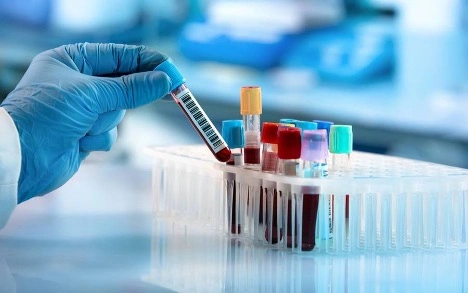
Anti-Mullerian Hormone (AMH) Testing 101
What is anti-mullerian hormone (AMH)?
Cells inside the follicles of a woman’s ovaries produce AMH, and AMH levels correspond to the number of eggs you have (your ovarian reserve). Higher AMH levels mean you have more eggs (a higher ovarian reserve), while lower AMH levels mean you have fewer eggs (a lower ovarian reserve).
What is an AMH test?
An AMH test measures the amount of anti-mullerian hormone in your blood. Healthcare providers often conduct AMH tests for women to provide a snapshot of their reproductive health.
What does an AMH test tell you?
An AMH test tells you the number of remaining eggs you have and is a rough estimate of the health of your ovaries and your reproductive potential. It can reveal how well you may respond to injectable fertility drugs to stimulate your ovaries to multiple eggs in preparation for in vitro fertilization (IVF). It can also help diagnose and monitor problems with the ovaries that cause high AMH levels, such as polycystic ovary syndrome (PCOS) and certain types of ovarian cancer.
What can’t an AMH test tell you?
AMH tests cannot tell you about the health of your eggs or predict whether you’ll be able to get pregnant.
In addition to your AMH levels, your ability to conceive is influenced by factors such as age, medical conditions, lifestyle choices, and more.
How can I get an AMH test?
AMH tests can be purchased in stores and online and can be administered in a healthcare provider’s office. Though at-home tests are convenient, fertility specialists are best equipped to help you interpret the results and formulate an appropriate course of action. Here at IFI, we conduct AMH tests as part of our new patient consultation process.
What do I need to prepare for an AMH test?
You don’t need to do anything to prepare for an AMH test.
What do my results mean?
The meaning of AMH test results differ depending on the reason the test was performed:
- If you’re healthy and trying to get pregnant, please ask your provider to explain your results based on your age and other relevant factors. In general, a high level of AMH means you have more eggs available, and a low level means your egg supply may be lower.
- If you were tested for polycystic ovary syndrome (PCOS), a high AMH level is a sign that you may have the syndrome, but additional tests are required to diagnose PCOS.
Be sure to consult with your healthcare provider for an interpretation of your AMH levels and to discuss an appropriate plan with them based on your results.
Key Sources: Anti-Mullerian Hormone Test (Cleveland Clinic, March 2022); Anti-Müllerian Hormone Test (MedlinePlus, March 2023); Polycystic Ovary Syndrome (Mayo Clinic, September 2022); Primary Ovarian Insufficiency (Mayo Clinic, October 2023)

